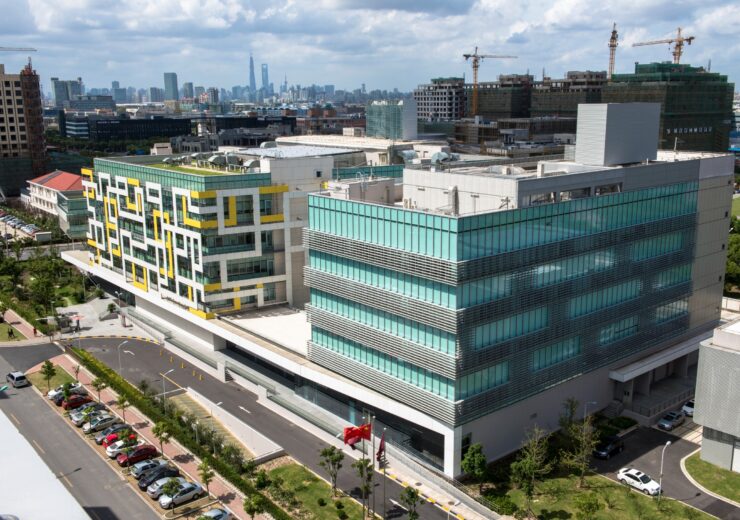The approval was based on the findings from the ASCEND global Phase 3 trial and a Phase 1/2 local trial, which demonstrated an 83.3% overall response rate in Chinese patients treated with Calquence

AstraZeneca’s Chinese headquarter. (Credit: AstraZeneca)
AstraZeneca announced that China’s National Medical Products Administration (NMPA) has approved its Calquence (acalabrutinib) to treat adult patients with chronic lymphocytic leukaemia (CLL) or small lymphocytic lymphoma (SLL).
Calquence is a next-generation, selective Bruton’s tyrosine kinase (BTK) inhibitor.
NMPA has approved the BTK inhibitor in China for CLL and SLL adult patients who have received at least one prior therapy.
The approval was based on the positive results from the ASCEND Phase 3 trial of Calquence against the investigator’s choice of idelalisib plus rituximab (IdR) or bendamustine plus rituximab (BR) for patients with relapsed or refractory (R/R) CLL.
It was also based on the findings from an open-label, single-arm Phase 1/2 trial in China for R/R CLL patients, the British pharmaceutical major said.
In the ASCEND trial, 88% of R/R CLL patients treated with Calquence were alive and showed disease-free progression after one year compared with 68% of patients treated with IdR/BR.
The longer-term follow-up data demonstrated that 62% of patients treated with Calquence were alive and had not progressed at 42 months against 19% of IdR/BR-treated patients.
In addition, the BTK inhibitor demonstrated an overall response rate (ORR) of 83.3% in a Phase 1/2 trial in Chinese people with R/R CLL.
The median progression-free survival (PFS) was not reached at a median follow-up of 20.2 months, and the 12-month and 18-month PFS rates were 90.7% and 78.8%, respectively.
In both the studies, Calquence’s safety and tolerability were consistent with what had been seen in earlier clinical trials, AstraZeneca added.
AstraZeneca Oncology Business Unit EVP Dave Fredrickson said: “Today’s approval is another step towards our goal of making Calquence available to as many patients as possible and offering physicians a treatment option with a well-established efficacy and tolerability profile.
“Patients with chronic lymphocytic leukaemia are often older and dealing with significant comorbidities, and tolerability is a critical factor in their treatment.”
ASCEND is a global, randomised, multicentre, open-label Phase 3 trial that randomised 310 patients into two treatment arms.
The Phase 1/2 trial is an open-label, multicentre clinical study that evaluates pharmacokinetics, tolerability, safety and clinical efficacy of Calquence.
